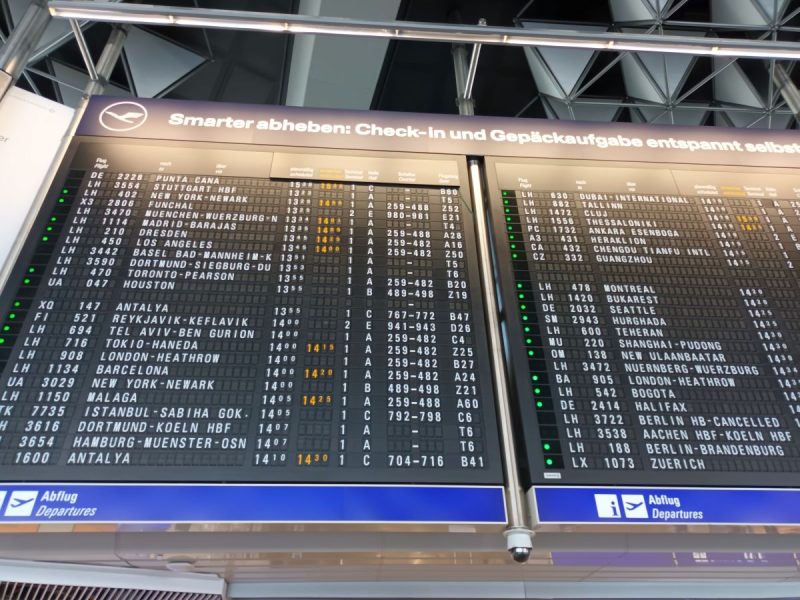In the world of aviation, there are a number of “freedoms” or rights that allow airlines and passengers to operate cross-border flights. One of these, often less in the spotlight, but still of great importance, is the Fifth Freedom. This article takes a closer look at aviation freedoms, focusing in particular on the Fifth Freedom, and highlights its advantages and disadvantages.
Aviation freedoms are a set of agreements and rights agreed between countries and aviation authorities to regulate and enable international air traffic. These freedoms allow airlines to operate flights between different countries, enabling global air transport connectivity.
The five freedoms of aviation are as follows:
- First freedom: The right to fly over one's own national territory without landing in that country.
- Second freedom: The right to land in another country, but only for the purpose of refueling or repairs.
- Third freedom: The right to fly passengers from one's own nation to another country.
- Fourth freedom: The right to fly passengers from another country to one's own nation.
- Fifth freedom: The right to transport passengers between two foreign countries while stopping in your own country.
In addition to the “official” freedoms of aviation, there are four other “so-called freedoms”. These are of particular importance within the European Union, because since April 1, 1997, carriers based in the EU have been permitted to carry out full cabotage within the Union territory. This has resulted in many providers being able to establish bases outside of their state of registration. Well-known examples of this include Ryanair, Easyjet, Wizz Air and other low-costers. However, the first airline to benefit from the changed rules was much smaller. It was the Austrian Rheintalflug Seewald Ges.mbH, which kicked off with Austrian AOC on the Friedrichshafen-Berlin (Tempelhof) route. This route was also followed by an ultra-short route to Hamburg from Tempelhof Central Airport. Münster/Osnabrück-Stuttgart was also served. Other carriers quickly followed suit, with Ryanair only setting up its first base in Germany at Frankfurt-Hahn Airport in 1999.
The “so-called freedoms” became a big issue around Brexit, as UK carriers are no longer allowed to fully benefit from them since the United Kingdom left the EU. This resulted in Easyjet, for example, setting up an “EU offshoot” in the form of the Austrian Easyjet Europe. Conversely, Ryanair and Wizz Air, for example, have founded UK subsidiaries in order to continue to fully serve the United Kingdom market.
The so-called freedoms of aviation are:
- So-called sixth freedom: Transport of passengers or freight between two foreign countries with a stopover in the home country.
- So-called seventh freedom: Transportation of passengers or cargo between two foreign countries without the route touching the home country.
- So-called eighth freedom: Consecutive cabotage: An airline carries passengers or cargo within another state on a flight that began or will end in the home country.
- So-called ninth freedom: Independent cabotage: An airline transports passengers or cargo within another state without touching another state.
The fifth freedom in detail
The Fifth Freedom is often of particular interest because it allows airlines to make stopovers in their home country on certain routes while picking up or dropping off passengers traveling between two other countries. This allows airlines to create commercially viable connections that they would not otherwise be able to offer.
A prominent example of fifth freedom flights in Europe are the Singapore Airlines connections. For example, this airline offers flights from Singapore to Frankfurt, where it makes a stopover in Frankfurt before flying on to New York. This means passengers can travel from Singapore to Frankfurt and from Frankfurt to New York without changing airlines. Similar fifth freedom flights are also offered by other international airlines in Europe. For example, Ethiopian Airlines has been offering this for some time such flights between Vienna and Copenhagen.
Benefits of Fifth Freedom Flights
- More travel options: Fifth freedom flights expand the choice of destinations and often offer cheaper prices than direct flights.
- Contest: They promote competition as they allow local airlines to compete with international providers.
- Tourism promotion: Fifth freedom flights can boost tourism as they allow tourists to visit multiple destinations in one trip.
- Cost benefits: For many providers, fifth freedom flights are comparatively cheap and allow passengers to “try out” long-haul products on short-haul flights. Depending on the provider, there may be a comparatively large number of miles (or none at all) for the respective frequent flyer program.
Disadvantages of Fifth Freedom Flights
- Capacity issues: In some cases, fifth freedom flights can cause capacity issues at congested airports.
- Unfair competition: Some argue that fifth freedom flights allow international airlines to enter the market unfairly and put local airlines at a disadvantage.
- Flight delays: Stopovers on Fifth Freedom flights may result in longer travel times.
- Passport and customs controls: Passport controls are carried out on fifth freedom flights operating within the Schengen area. If necessary, checks can also be carried out by customs authorities. Passengers therefore need more time.





 trail (for them it's free to use)
trail (for them it's free to use)